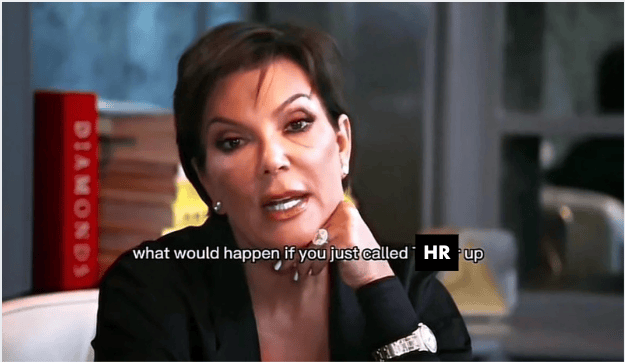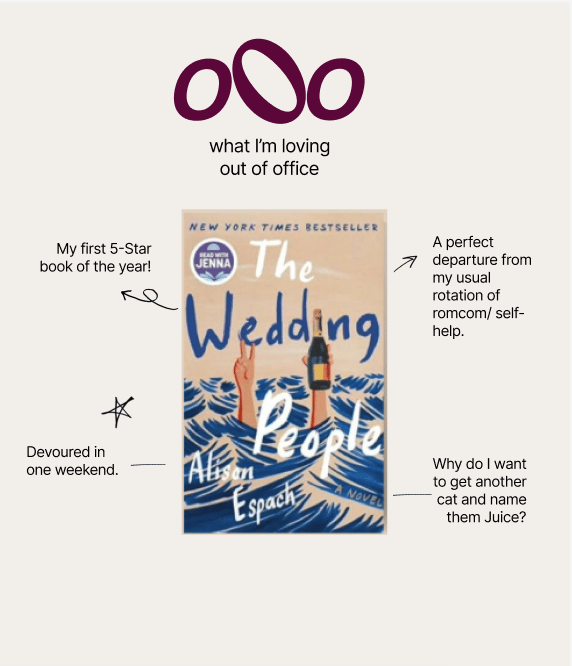- Going Places
- Posts
- Why Your Parents Don't Understand Your Career Struggles
Why Your Parents Don't Understand Your Career Struggles
The economy changed the rules. You're just playing by the new ones.

When I was on the job hunt two years ago and frantically refreshing my email to see if I’d been invited to the next interview round, I swear my mom’s favorite thing to say was, “You just have to call HR!”

I’m sure you’ve had the same kind of conversation with your own Boomer loved ones. Maybe it happens at holiday dinners, during phone calls, or in those moments when you're venting about work frustrations. Your parents listen, then offer advice that feels completely disconnected from your reality:
"Just stick it out—every job has its challenges."
"When I was your age, I was grateful to have any job."
"You've been there two years already. Why would you want to start over?"
And you sit there feeling misunderstood, maybe even a little crazy for wanting something different. Like you're being dramatic about struggles that seem perfectly reasonable to you but sound like first-world problems to them.
But as annoying as this is for me to admit, we’re both right.
Our struggles are real, and their confusion is understandable. But we’re living in two different economic universes, and that gap is wider than most people realize.


That was Then, This is Now
The generational career divide is more measurable than most folks realize:
⌛ Job Tenure Reality:
Baby Boomers averaged 10+ years at each job during their peak career years
Millennials average 2.8 years per job, with 91% expecting to change jobs every three years
60% of millennials are open to new job opportunities at any given time (compared to 45% of Gen X and 37% of Boomers)
🫠 Economic Foundation Shift:
In 1980, the median home price was 3.2 times the median household income
Today, it's 7.7 times the median household income
Wages for college graduates have been essentially flat since 2000, while housing, healthcare, and education costs have skyrocketed
💼 Career Advancement Reality:
70% of Baby Boomers experienced steady salary growth throughout their careers
Only 23% of millennials report the same trajectory, with many seeing income stagnation despite job changes and skill development
Our parents built careers in an economy where loyalty was rewarded with security.
We’re building careers in an economy where loyalty is often punished with stagnation.
Total System Shift
When our parents entered the workforce, there was an implicit contract: show up, work hard, stay loyal, and the company will take care of you. Pensions existed(!). Healthcare was largely employer-funded. The social safety net was stronger.
That contract has been systematically dismantled by a few key changes:
1️⃣ The Loyalty Trap: Many companies have elimintated pensions, reduced employee benefits, and normalized layoffs as profit-optimization strategies. But they kept expecting employee loyalty while offering none in return.
2️⃣ The Skill Treadmill: The lifecycle of job skills has shortened from years to months in many industries. Our parents could master a skill set and ride it for decades. We’re expected to constantly upskill just to stay relevant. (I’ve seen this push from the other side, too, during my 8 years in corporate HR.)
3️⃣ The Gig-ification of Everything: Even "stable" jobs now come with gig economy uncertainty—contract work, freelance elements, project-based roles that offer no long-term security.
Our parents didn't job-hop because, frankly, they didn't need to.
The system rewarded staying put.
We job-hop because the system seems to punish staying put.
“Ugh, You Don’t Get It!”
Here's where it gets emotionally complex: our parents genuinely cannot understand our career struggles because their frame of reference is fundamentally different.
Their Mental Model:
Career = job security
Success = climbing one ladder
Fulfillment = a nice-to-have that comes after security
Risk = leaving a "good job"
(Have immigrant or first-gen parents, like me? Yeah, multiply that 👆 by 100.)
Our Mental Model:
Career = portfolio of experiences
Success = autonomy and impact
Fulfillment = essential for sustainability
Risk = staying somewhere that's not growing you
Neither is wrong, but they're incompatible worldviews shaped by completely different economic realities.
When they hear us say, "I'm not fulfilled," they hear "I'm ungrateful."
When we hear them say "just stick it out," we hear "your happiness doesn't matter."
And when the people closest to you don't understand your career struggles, it amplifies the feeling that maybe you are being dramatic, ungrateful, or unrealistic.
The isolation of being misunderstood by your own family about something as central as your career creates a specific kind of loneliness. You start to wonder if you're broken for wanting more than just a paycheck.
The Permission You Don't Need (But Deserve)
You don't need your parents' understanding to make career decisions that align with your reality. But you deserve to know that your struggles make sense within the context you're actually living in.
The career path that feels "right" to you might look chaotic to them. The risks that feel necessary to you might seem reckless to them. The fulfillment you're seeking might seem indulgent to them.
All of that can be true and your choices can still be rational, strategic, and brave.
You're not job-hopping because you can't commit.
You're job-hopping because staying committed to employers who won't commit to you is economic self-sabotage.
You're not seeking fulfillment because you're spoiled.
You're seeking fulfillment because you've realized that unfulfilling work in an unstable economy is a recipe for burnout without the payoff.
You're not starting over because you can't figure out what you want.
You're starting over because the career path you chose at 22 was designed for an economic future that no longer exists.
You're not broken for wanting a career that works within the economy you actually live in.
You're realistic and adaptive.
Text This to Your Parents:
The generational career divide isn't going anywhere. Hell, the economic structures that created it are likely to deepen, not resolve.
But understanding why your parents don't get it can free you from needing them to get it. Their career advice comes from love , but it also comes from a world that no longer exists (they genuinely think HR departments still have phone numbers).
Your career struggles are valid. Your desire for fulfillment isn't selfish. Your willingness to change course demonstrates intelligence.
The economy changed the rules, and you’re just playing by the new ones.
What's your experience with this generational divide? Do your parents understand your career choices, or do you find yourself explaining a reality they can't quite grasp? I'd love to hear your take in the comments.
Did you like this issue of Going Places? |


This week’s question comes from Thomas over on LinkedIn:
“I’ve built a strong personal brand online, but it feels disconnected from my actual career path. Should I lean into the brand and try to monetize it, or focus on aligning it with a traditional career move?”
First of all, good on you for building a strong personal brand! What you’re experiencing is the push and pull between the identity you’ve built publicly and the career path you’ve been following privately. Here’s how I’d think about it:
Monetizing the brand works best if you’re energized by creating, sharing, and experimenting online/publicly. If your online presence feels like an authentic extension of who you are, monetization can open up new possibilities, like consulting, partnerships, courses, creative collaborations. But the tradeoff is that it’s less linear, less predictable, and requires you to be comfortable with seasons of trial and error.
Aligning with a traditional move is a great path if you’re craving structure and a clear(er) trajectory. Your personal brand doesn’t go to waste here; it actually makes you stand out as someone who can build influence, communicate, and lead. The key is choosing roles and organizations that value that visibility rather than seeing it as “extra.”



Love the newsletter but want more? Did you know I put together an entire course called Pivot with Purpose? Think of it like a supercharged version of all the best content from this newsletter, tailored to help you nail your career goals.
It’s about damn time you found a career that fits!

Pivot with Purpose is a self-paced online course that has helped 100’s of mid-career millennials land competitive roles in marketing, non-profit management, venture capital, and more! Unlock customizable networking scripts, interviewing & negotiation resources— most Pivoters earn back their investment in the course with their first negotiated offer! Don’t leave clarity, confidence- or cash- on the table.






Reply